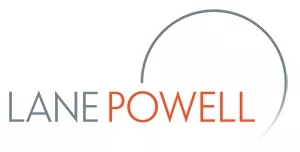Following months of on-again, off-again negotiations among
representatives of both parties, both chambers of Congress, the
U.S. Treasury Department and the White House, it appears that
another stimulus bill is on the horizon. We are hesitant to predict
anything in the world of COVID stimulus, not only because of the
uncertainty that surrounds the politics of COVID, but also because
we don't want to jinx the process. Nevertheless, because we are
closer than we have been in months to seeing a new stimulus bill,
including a legislative re-assessment of the Paycheck Protection
Program (PPP), we want to focus your attention on the key PPP and
small business provisions likely to be enacted into law —
based on the framework summary of the Bipartisan
Emergency COVID Relief Act of 2020 shared on December 9.
- Deduction for Expenses That Result in PPP Loan
Forgiveness. Expenses paid for with the proceeds of
PPP loans would be tax deductible even though PPP forgiveness is
already not taxable income. As we discussed in this article and in this article, there is bipartisan support to
reverse IRS rulings on this subject.
- Second PPP Loan. Funding is provided to
allow the hardest-hit small businesses to receive a second
forgivable PPP loan. Eligibility would be limited to small
businesses with 300 or fewer employees that have sustained a 30
percent revenue loss in any quarter of 2020. Restaurants, hotels
and travel industry participants have lobbied hard for additional
relief given the impact of the pandemic on their businesses.
- Additional Non-Profits Eligible for PPP.
Organizations described in Section 501(c)(6) of the Internal
Revenue Code (but excluding lobbying organizations) will now be
eligible for PPP loans if they have 150 or fewer employees. This
provision will benefit many local chambers of commerce, economic
development organizations and tourism offices.
- Expansion of PPP Forgiveness. PPP forgivable
expenses would be expanded to include supplier costs and
investments in facility modifications and personal protective
equipment to operate safely. At this time, it is unclear whether
this expansion applies to all PPP loans (including those for which
forgiveness may already be in process) or only for new PPP loans
made after enactment.
- Simplified Forgiveness Process. The PPP
loan forgiveness process would be simplified for borrowers with PPP
loans of $150,000 or less. Lenders have been pushing for such
simplification and the IRS has already provided some relief for PPP
loans under $50,000.
- Special Help for Smaller Borrowers and Underserved
Communities. New PPP funds would be dedicated for
smaller borrowers and underserved communities, generally focused on
(1) businesses with 10 or fewer employees and (2) loans made by
small community lenders, including Community Development Financial
Institutions (CDFIs), credit unions, small community banks,
Minority Depository Institutions (MDIs) and farm service lenders;
and for the Minority Business Development Agency.
- Special Relief for Live Venue
Operators. Funding would be expanded for independent
live venue operators affected by COVID-19 stay-at-home orders,
providing a badly-needed shot in the arm for the performing arts
community. But it is unclear whether those organizations would be
entitled to participate if they have already received a PPP
loan.
- Extension of Certain Loan Programs. New
funding is provided to extend Section 1112 of the CARES Act, which
provides payment of principal, interest and associated fees on
qualifying Small Business Administration (SBA) 7(a), 504 and
microloans.
- Increased Funds for Certain Loan
Programs. Funding would be added for SBA loan
products to increase guarantees on SBA 7(a) loans and reduce fees
on 7(a) and 504 loans; provide loan subsidies for 7(a) loans; and
provide Economic Injury Disaster Loan grant advances.
The bipartisan agreement is still working its way through the legislative process and it's anyone's guess what the final bill will look like, but we'll keep you apprised.
The content of this article is intended to provide a general guide to the subject matter. Specialist advice should be sought about your specific circumstances.


